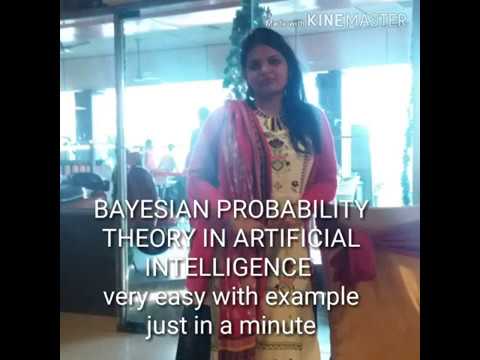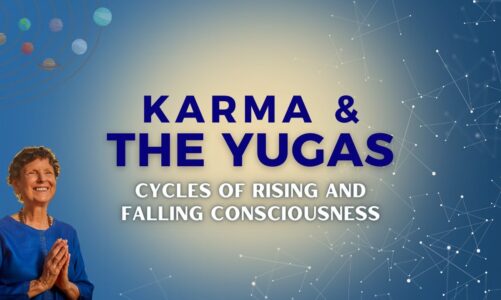Footnotes2Plato
I think the comparison between ‘elan vital’ and the experience of panexperientialism is spurious, because the ‘life force’ is conceived of as a substance which gives matter its form, whereas panexperientialism (as a component of a process ontology) rejects substance all together (whether mental or material).
As far as circular reasoning goes, I could just as easily say that the materialist attempts to explain experience by saying it is material. This can never be proven empirically, of course (because the outward facing senses can only presuppose experience in their evaluation of the exterior world). Also, if you watched my last video (The Enjoyment of Matter), you’ll hear my argument for why materialist explanations of biological evolution are circular: they claim that the motivation for life is ‘survival,’ when survival is simply a synonym for life. Life is survival. No explanation here. If we want to explain why organisms survive (and why evolution can take place), I suggest we consider: because they enjoy life.
About the question concerning green, Evan Thompson and Alva Noe have written beautifully on how to navigate the terrain between objectivist theories (color is wavelength) and subjectivist theories (color is neural pattern) by pointing to the co-evolutionary emergence of the color of various features of the biosphere and the participatory (or enactive) way in which color arises. See: http://books.google.com/books?id=r70IEreOL-wC&pg=PA402&lpg=PA402&dq=enactivism+color+vision&source=bl&ots=we-JTYWMt4&sig=08AFRvLabv5dg5P4bd0NWjMIXRU&hl=en&ei=hosUSonrFOrgtgfArYyhBA&sa=X&oi=book_result&ct=result&resnum=4
Concerning interaction between material and mental aspects, consider matter to be equivalent to the past and mind to be equivalent to the future. For a panexperientialist, every organized body (from atoms to organisms) experiences a present equally (though differently) influenced by the past and the future. The past is already actual, while the future is merely possible. So the past is given as efficient causality; its influence is determinate. But the future provides freedom by offering certain possibilities left open by the actuality of the past. The mental aspect of a body provides it with its purposefulness, its ability to invent, while the material aspect provides it with its inherited habits and is the ground from which it leaps.
Experience is indeed, therefore, part of the causal nexus. But in a process ontology, this nexus is not only driven by efficient causes from the past, but attracted by final causes in the future (though again, past and future are both immanent in the present, so it is not as though the future reaches back to cause the past).
Source




That's not very nice!
Good video – I will make a response within the next few days or so.
I've heard it proposed that time is merely a function of motion. Stop motion and everything related to it stops. Don't know if its true but its an interesting theory.
Motion is another property of extension. It is related to time, but does not define it by any means. Think more on what Bergson said, "Time is invention, or it is nothing at all." He is saying that time has a directed, creative essence that is more than mere motion or change.
good deal.
I do not have the vocabulary required to follow your videos… lol
I am curious if you could help me understand what time actually is. It makes sense that time is the space between now and now, or between sunrise and sunset.
I wonder though, If the universe was not spinning and instead was moving in a straight life could the concept of time still exist.
If every moment is seen as a completely different moment without the repeating events, would the concept of time work?
Most philosophers characterized space as extended and simultaneous (meaning it is 'out there' and 'all at once'). Time is trickier, and so far as I can tell, philosophical opinions vary widely in regards to its nature. Some say time concerns succession, the way one thing follows the next; this is measurable clocktime. Others (like me) see time an intensity (as opposed to the extension of space) which cannot be measured our quantiied. McKenna says time is a 'novelty producing engine.'
Yes I am familiar with Mckenna's ideas on time. I find them very interesting. Would love to see his model and compare it to events happening in real time.
It is interesting to think that light, gravity, and time are all things that science has not seemed to be able to explain.
I start to feel as if I am getting lost when I think to deeply upon such concepts. Alan Watts says that the more closely you observe the universe the larger it becomes to escape explanation.
I hope that this exchange with Kyle does NOT digress into a "Philosophical pwnage Olympics"
But this argument, that reductionist neo-darwinism is rejected because it uses circular logic. This is one of the weakest arguments I've ever heard from Matt. As we know it is more complicated than that.
Reductionist materialism is, at the least, consistent within its own little myopic universe. It is in the attempts to stretch it outside of those bounds that expose its embarrassing failures. 5 *'s
Natural selection as a reason for evolution is a truism.
What use is it to say that a species exists because it has survived? Yes, it survived and so it exists. Wonderful. Now why has it evolved? A neo-Darwinist says we cannot ask this question because they have already assumed a materialist metaphysics which suggests that nature is purposeless (except for hunger, rage, selfishness, and lust). The real metaphysical position of the nDist is that nature is evil, and so we must transcend it.
If neo-Darwinism escapes circular logic, it is only because it is breaking one of its own most sacred rules by sneaking telos into nature. Only if genes really are selfish can they be the cause of evolutionary change. Dawkins says its just a metaphor, but unless we take it literally the theory does not explain the phenomena, it merely asserts a logical truism: Genes that are selected survive; what is selection? Survival.
*brillianto*
Darwinian selection obviously plays a role in evolution. What I am arguing is that it is not explanatory of evolution or of living phenomena in general.
Life (or living organization, if you prefer) is essentially autopoiesis, not replication. Logically, self-production must come prior to reproduction. Darwin's theory assumes self-producing organisms and offers one way in which their form can change over time.
Bergson argued that the intellect necessarily spatializes whatever it tries to understand, and I would agree. But I think we have access to other, less restrictive organs of perception enabling us to integrate time into our thoughts. I don't think the task of philosophy is to 'represent' truth, but to seek wisdom and understanding directly.
I do think that technology has become the savior of our materialist culture. We assume that death is a disease and are working tirelessly to 'conquer' it with some medical fix. If we succeed, we will no longer be human. I don't think we can succeed, however. Life and death go together like earth and sky. You can't have one without the other.
Great post! Thanks again.
You might like to explore the connection between time and vibrations/oscillations.
I agree with you on that particular point. There is a sense that the Theory of Evolution is merely saying "..whatever happens is what happens…" This was expressed very well in a televised debate about Darwinian evolution in the 1990s. One of the speakers was William F Buckley. I agree with the speakers there that this does not count as a scientific theory. I don't care how "upset" this made the scientists. Being upset in a debate is not a valid counter.
watch?v=k7gZhksK9Sw
my name is Elan…
@0ThouArtThat0 "I could just as easily say that the materialist attempts to explain experience by saying it is material."
This is very true, might we say that LordImmolation is a pan-materialist?